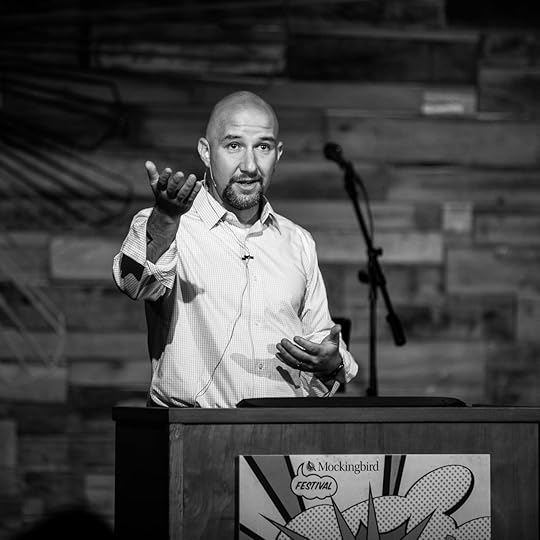No Formula, Only Faithfulness

If you appreciate the work, pay it forward. Literally! Become a paid subscriber.
Luke 5.17-26
This Sunday I am preaching on Luke’s account of the four friends who lower their paralyzed friend down to Jesus. As with the story of the Centurion’s child, this is an instance of a third party miracle. Jesus sees not the paralytic’s faith but his friends’ faith and heals him only after first forgiving him of his sins.
A sloppy reading of scripture might suggest that Jesus pardons and heals the paralyzed sinner on account of his friends’ faith— that faith is the requisite precondition for the miracle. Such an interpretative move, however, ignores other episodes where Jesus heals not because he finds faith in a person but because he sees him or her (for example, the widow at Nain) and is moved to compassion. In fact, if you read the Gospel’s account of Christ’s miracles, then you notice how the common feature they all share is the lack of a standard pattern.
Jesus does not heal the same way twice. Miracles are not the performance of a fixed technique.In the case of the Centurion, Jesus need not even be present. Rather than a healing touch, he but needs to say a healing word. Meanwhile, he does not touch the woman with the issue of blood; she touches him. And she touches not him but the hem of his garment. Sometimes Jesus speaks a word, and the healing occurs immediately, “Be clean,” he says to the leper. Other times he engages in what appears to be either street theater or an impromptu effort—spitting on the ground, making mud, smearing it on a blind man's eyes, and instructing him to go wash in a pool. Occasionally, Jesus asks probing, almost offensive questions first, “Do you want to be made well?”
In the church, we lay hands and anoint heads with oil.
But with Jesus, there is no one-size-fits-all approach.
There is a strange simplicity to Jesus; namely, he is not predictable. But he is good.That Jesus does not heal the same way twice is not just an exegetical curiosity. These differences are not incidental. They reveal something essential about Jesus. He is not a magician. He is not a technician. He is not a shaman. He is not a doctor operating by prescribed procedures or time-tested traditions.
Sometimes Jesus just is making it up as he goes along. Because he can!He is the LORD.When Jesus heals the man on the mat, he first calls him “Friend” and declares the forgiveness of his sins, a promise only God can promise— a trespass the scribes are right to resist unless Jesus is as he does. He is LORD. This means his actions are governed not by method but by mercy. He is free to heal whomever he heals; he is free to heal however he wills. And because the LORD is Jesus, he is free to heal in a manner that neither meets our expectations nor rewards our religiosity.
The lack of a fixed technique or standard pattern is both liberating and unsettling.
We want formulas.
Which is to say, we want the law: steps to take, commands to keep, procedures to follow. We want to know what it takes to be healed, to be delivered, to have our prayers answered. We want to know how much faith is enough and how little faith is too meager. But the Gospels resist these kinds of calculations.
We want the law because we want to be in charge. But Jesus is God’s one-way love made flesh.The Gospels are not like the directions on my bottle of chemotherapy.
They are the same each month.
Again and again, Jesus heals in ways that defy our expectations. Perhaps even more provocatively, Jesus often heals apart from any apparent act of faith.
Take the man at the pool of Bethsaida—
When Jesus asks him if he wants to be made well, the man doesn’t respond with faith but with a gripe, “I have no one to help me into the pool.” Jesus heals him anyway. The man doesn't even know who Jesus is until later. If healing always required faith, what then are we to make of such stories? If faith were a precondition, these moments would seem to break the rules.
With Jesus there are no rules.
With Jesus there is only compassion.
But perhaps the better conclusion is that there are no rules. There is only the rule of mercy. Jesus heals not because the suffering have earned it with enough faith, not because they’ve performed the right religious gesture, but because he is merciful and moved by compassion. Faith may indeed open us to recognize what God is doing, but God does not wait on us to act before he acts. The mercy of God in Jesus Christ precedes us, carries us, and surrounds us.
Every pastor understands what is at stake in reading these stories well. “If I just had more faith,” hearts always reason, “then maybe God would’ve healed…” The lack of a pattern almost suggests Jesus’ attempt to keep us from weaponizing faith, turning it into a measuring stick or a mechanism of blame. Every pastor has sat in hospital rooms and at gravesides hearing not only grief but guilt— survivors wondering what they did wrong to prevent God from showing up.
But just as God creates from no need in God, the LORD does not first need something from us (faith, obedience, contrition, fervency, desire) in order to have compassion on us. Jesus just is Compassion.He is not waiting for us to believe before he acts. He is awed by the friends who tear the roof off the place— sure, but they do not need to tear the roof off of the place in order for Christ to incline his heart to their poor friend. Jesus is not standing back, hands in his pockets, until we pass some spiritual test. Rather, he is already and always on the move, always turning toward the broken, always drawing near in compassion.
Even when we don't know it.
Even when we cannot see it.
Even when we cannot muster the faith to ask for it.
Jesus is the Compassion of God made flesh.
Of course— yes— there are also times in the Gospels when Jesus does respond to expressed faith. The bleeding woman who grabs the seam of his jeans, Jesus praises for her courage and belief. Bartimaeus cries out as stubbornly as the persistent widow, and Jesus rewards him sight.
Faith is not irrelevant. But it is not a hall pass into Jesus’ good graces.Belief is not currency that purchases healing. It is more like a window opened to the light already shining. Jesus does not say, “Because you believed hard enough, I will now do this.” Jesus says, “Your faith has made you well”—as if to say, “You saw what I was already doing, and you stepped into it.”
Healing is not predictable. But it is promised.Every miracle is a down payment on the Future promised by the gospel.
Therefore, healing is not a guarantee but, when it comes, it is always a sign of who Jesus is and the Last Future where he yet lives. The promise is not that all will be healed in the way or time we desire. The promise is that in Jesus all of creation will be healed in the fullness of time.
The apostle Paul understood that the Risen Jesus is not predictable but he is good.
When Paul asked for healing, he received instead a perplexing promise, “My grace is sufficient for you, for my power is made perfect in weakness.” That work is the most honest, hopeful gospel promise we can offer a world that prefers a clear prescription.
Grace is enough.
Healing may come in this life.
It may come only in the next.
Either way, it likely will come in a way we do not expect.
But it will come.
Because, though he’s not predictable, he is good. Whether he speaks a faraway word or smears mud like a toddler into your eyes, whether he heals with a touch or from a distance or only after a lifetime, his mercy does not fail.
This just is the gospel: not that we always get what we want, but that God is always who he says he is in Jesus Christ. This is the fixed point in his ministry. Get more from Jason Micheli in the Substack appAvailable for iOS and AndroidGet the app
Get more from Jason Micheli in the Substack appAvailable for iOS and AndroidGet the app
Jason Micheli's Blog
- Jason Micheli's profile
- 13 followers



